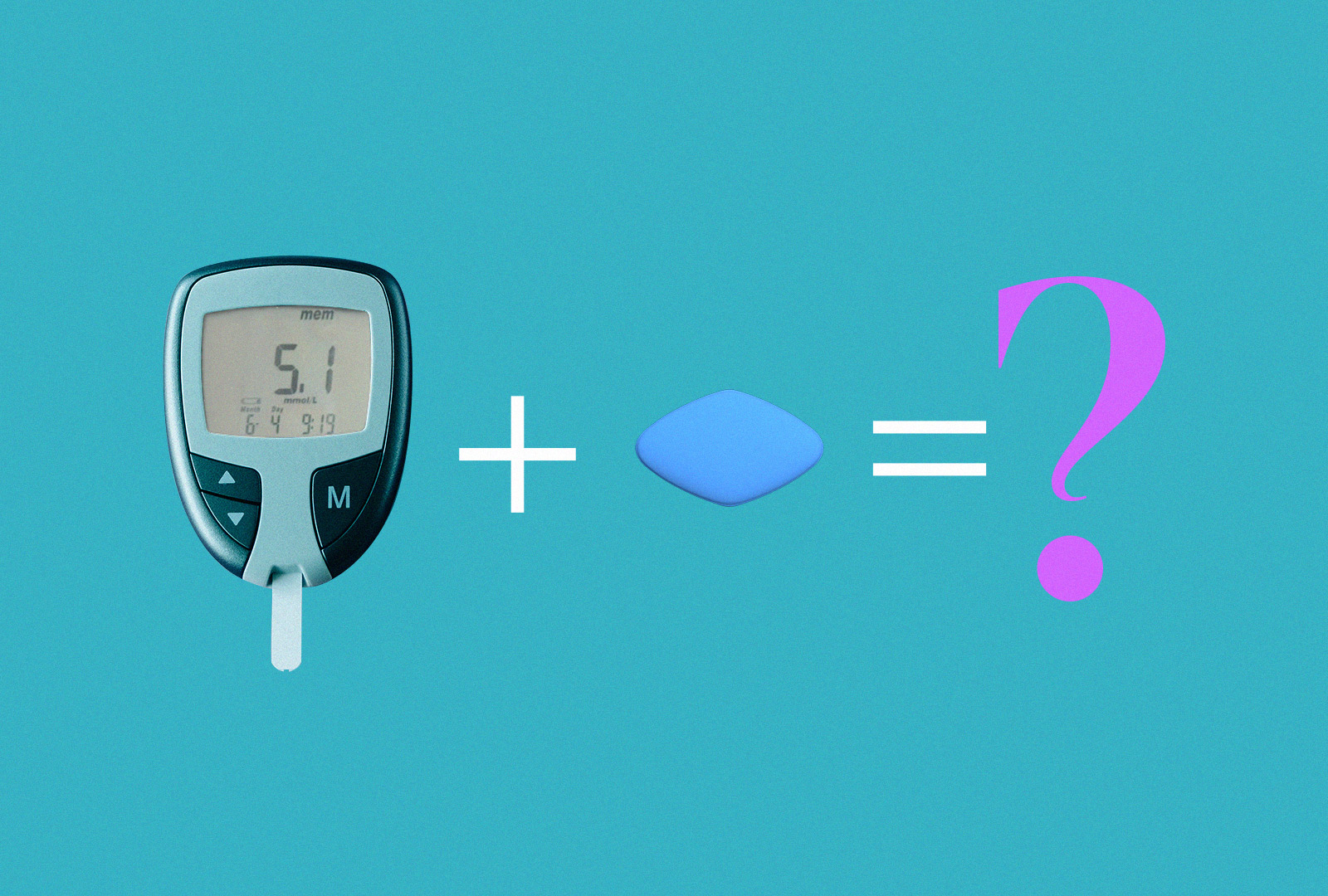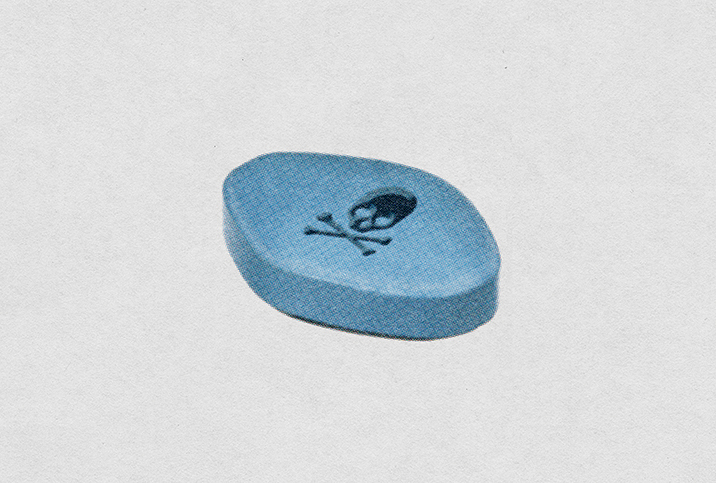Treatment of Erectile Dysfunction

It is not uncommon for a man to have occasional trouble achieving and maintaining an erection firm enough for sex. If the condition is ongoing or progressive, however, it's likely time to seek medical treatment.
Erectile dysfunction (ED) can cause stress in your relationships and affect your self-confidence, but even if you're embarrassed, you should seek medical attention, because this condition is sometimes related to underlying medical issues that require additional care.
Additionally, it's important to recognize erectile dysfunction and libido are two separate issues. Your physical ability to maintain an erection for sex is not necessarily a reflection of your attraction toward your partner. Knowing this could help eliminate doubts and insecurities in your partner and alleviate stress.
An overview of erectile dysfunction
The 1994 Massachusetts Male Aging Study focused on the results of a survey of 1,709 men from 1987 to 1989. Researchers found the frequency rate of minimal, moderate and complete ED was 52 percent for the participants. Boston University School of Medicine suggests 10 percent of men from age 40 to 70 have complete erectile dysfunction: the total inability to have an erection sufficient enough for sexual performance. In this age category, the rate of men who experience moderate or intermittent difficulties increases by 25 percent. Overall, the frequency of men who have moderate to complete ED rises to 50 percent by age 70. It is important to note the statistics from the first study include minimal erectile dysfunction, whereas the second does not.
Several underlying physical causes increase your risk of erectile dysfunction. Evaluating them is part of the diagnostic process to help your physician determine the right treatment.
Diagnosis of erectile dysfunction
Often, a urologist will help diagnose and treat erectile dysfunction. Diagnosis begins with a medical and sexual history and includes a physical exam and an evaluation of your mental health.
Each of these factors helps your doctor determine the underlying conditions possibly contributing to ED. They also determine if you are experiencing an intermittent issue or may need medical or surgical treatment. The known risk factors that increase the potential you may have problems with erectile dysfunction include:
-
Being older than 50
-
High blood sugar from type 1 or type 2 diabetes
-
High blood pressure, also known as hypertension
-
Heart disease, also called cardiovascular disease
-
Excessive use of tobacco products, alcohol or recreational drugs
-
Metabolic syndrome, high cholesterol or obesity
Your doctor will take a sexual history, asking questions about your ability to maintain an erection during sexual intercourse, how often you find intercourse satisfying and if you awaken in the morning with an erection. During the physical examination, your doctor will evaluate your blood pressure, take your pulse in your wrists and ankles and evaluate the amount of body hair or breast enlargement, to check for possible hormonal problems.
Blood tests that check for atherosclerosis, chronic kidney disease, diabetes and other hormonal problems can uncover potential underlying medical conditions that cause ED. Your doctor may recommend a Doppler ultrasound to evaluate the blood flow through your penis. Achieving and maintaining an erection is dependent on having adequate blood flow.
Medical treatment
You and your doctor will discuss possible treatment options, which depend on your age, any underlying medical conditions, your expectations and the extent of your dysfunction. Medical treatment begins with addressing your heart and vascular health, both of which have a significant impact on erectile dysfunction. Additionally, different types of medications affect your ability to achieve and maintain an erection.
Test results will also help determine if you would benefit from testosterone replacement therapy, which can help to improve bone density, mood, muscle mass and heighten sexual interest. However, testosterone is not offered to men with normal levels.
Several oral medications are available that can help some men achieve and maintain an erection for satisfying sexual performance, such as sildenafil (Viagra), tadalafil (Cialis) and vardenafil (Levitra).
Medical devices
Wearable, medical-grade devices, such as constriction devices or vacuum pumps can effectively help men address the issue noninvasively. These devices are placed around the base of the penis to constrict blood flow during sex and help maintain an erection. Eddie by GiddyⓇ, an FDA-registered Class II example, is designed to treat erectile dysfunction and improve male sexual performance. Its unique shape optimizes blood flow as it puts pressure on the veins of the penis but not the arteries, and without constricting the urethra.
Eddie is available without a prescription and comes without the side effects of ED medications or the risks of injections or invasive surgery.
Surgical treatment
Your physical and medical condition will dictate your surgical options. Surgery may be the only option for men whose ED is due to past surgical procedures in the pelvis or past physical trauma. There are several options your surgeon will discuss with you to identify what best fits your lifestyle and medical conditions.
Penile prostheses
Penile prostheses allow for more spontaneity than medication or a vacuum device. Neither the malleable nor inflatable implant changes the sensation on the skin or the ability to orgasm and ejaculate. The malleable implant is a semi-rigid rod surgically placed in the penis. It provides permanent firmness you can conceal by manually bending the penis downward. Inflatable implants come in two-piece and three-piece varieties and are surgically placed. You inflate them before sex and deflate them after intercourse.
Microsurgical penile revascularization
This procedure is also called microvascular arterial bypass surgery and works in the same way as a cardiac bypass. It's used in men younger than 50 who may have had a blunt trauma injury with a localized arterial lesion. The surgeon uses a donor artery from the leg to bypass the arterial lesion that is slowing blood supply to the penis.
Alternative treatment
In addition to the medical and surgical options, there are some natural or alternative treatments you could consider, but be sure to have a full physical exam before trying any of them. Erectile dysfunction may be the first symptom of a more serious underlying medical condition such as heart disease, vascular disease or type 2 diabetes, so it's important to consult a doctor. If you receive a clear medical examination, you may wish to try an alternative treatment first.
One study in 2017 found people with erectile dysfunction also had low levels of L-arginine, an amino acid that is a vasodilator, which means it helps open blood vessels and increases the blood supply to the penis. More research is necessary to determine the safety and effectiveness of this remedy. (Keep in mind that almost no supplements are tested or approved by the U.S. Food and Drug Administration, so caution is always encouraged.) If you are taking drugs such as Viagra, avoid using L-arginine because the combination can cause your blood pressure to drop too low.
Ginkgo biloba and ginseng, or Panax ginseng, are both popular home remedies that may help to increase blood flow to the penis and combat ED. To date, the National Center for Complementary and Integrative Health indicates there's not enough evidence to support the use of Ginkgo biloba. Preliminary studies have suggested ginseng may be useful, but more research is necessary to confirm the effects.
Lifestyle choices for treatment
Physical and mental health conditions may trigger erectile dysfunction and offer insight into possible lifestyle changes that could help manage or prevent sexual dysfunction. Choosing healthy lifestyle options helps manage vascular conditions—type 2 diabetes, cardiovascular disease and high blood pressure are among them—and reduces symptoms.
Eating a healthy diet low in sugars and simple carbohydrates and high in omega-3 fatty acids can help support your cardiovascular system. Exercise helps you manage stress and maintain a healthy weight. Because tobacco damages your blood vessels, seek a program that will help you successfully quit smoking if you're a smoker. Excessive alcohol or recreational drugs can reduce your sex drive and erectile function, too.
Outlook
In general, the outlook for men with erectile dysfunction is excellent. Advances in diagnosis and treatment for the underlying conditions that cause and affect ED continue to improve, including counseling, which offers relief from the stress or anxiety associated with erectile dysfunction.
It's easy to feel frustrated about ED, but it is important to remember the condition is treatable and, in some cases, reversible. Talk to your healthcare provider about the best course of treatment to help alleviate your medical condition and restore your sexual function.


















